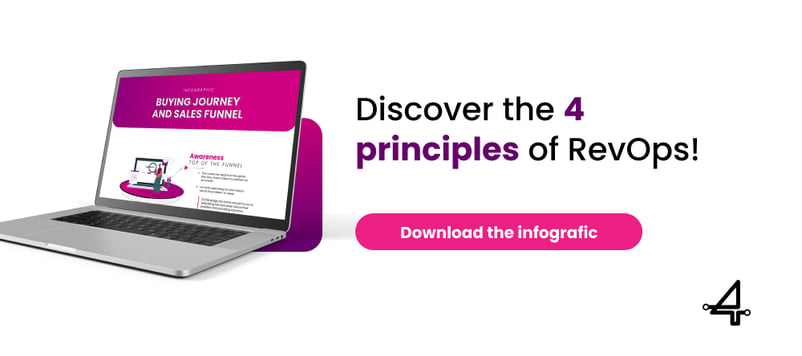In a competitive environment, understanding what customers do, need, and value reduces guesswork and speeds up course corrections. Data-driven decision-making helps connect acquisition and retention to everyday evidence, such as intent, engagement, conversion, and drop-off signals.
Being Data Driven means making decisions based on data and insights obtained through the analysis of information collected from various sources, such as social networks, websites, surveys and other channels.
This approach can provide valuable insights into customer behavior and preferences, allowing companies to customize your marketing strategies and sales to meet individual customer needs more effectively.
Along these lines, being Data Driven is essential to remain competitive in the current market and can be a valuable tool for companies that want to gain an advantage over the competition in attracting and retaining customers.
What you will see in today’s content
- Why understanding what the customer does, needs, and values reduces guesswork and speeds up course corrections.
- What it means to be Data Driven and how data and insights guide decisions.
- What the data driven approach is, with collection, analysis, and interpretation to improve processes and results.
- How analysis, visualization, automations, and a well maintained database support the practice.
- Why data quality matters, with criteria such as accuracy, completeness, and timeliness.
- Benefits of being data driven, such as more precise decisions, risk reduction, efficiency, and a better customer experience.
- How marketing automation and CRM support acquisition and retention with more effective and personalized campaigns.
- How to address privacy, transparency, and guidelines related to handling personal data in Brazil.
- How to identify churn signals and create simple actions for different scenarios.
Good read!
What is data driven?
Data driven is an approach that uses data and information to guide decision-making in a business or organization. It involves the data collection, analysis and interpretation to obtain insights and information that can be used to improve processes, products, services, strategies and results.
The data driven approach is frequently used in several areas, such as marketing, sales, finance, human resources, among others. It allows companies to make more informed and accurate decisions, reducing risks and increasing the chances of success.
In practice, being data-driven blends analysis, visualization, and automations with a well-maintained data foundation. Techniques like data mining help uncover patterns and relationships in large datasets, as long as data quality is treated as a requirement, with criteria such as accuracy, completeness, and timeliness.
The objective is to use these tools to collect, process and analyze data in order to identify patterns and trends that can be used to guide business decisions.
What are the benefits and advantages of being data driven?
A data-driven company uses data and information to guide its business decisions rather than relying exclusively on intuition or experience. Given this, here are some benefits and advantages of a company being data driven:
More accurate decision making
By making data-driven decisions, a company is able to more accurately assess current performance and future trends, making more informed and accurate decisions.
Risk reduction
By making data-driven decisions, a company is able to identify and mitigate risks more quickly, minimizing potential financial losses and reputational damage.
SEE TOO:
Greater efficiency
A data driven company is capable of optimizing its business processes, reducing costs and increasing efficiency in all areas.
Improved customer experience
A data driven company can use data to better understand customer needs and preferences, allowing the creation of personalized and improved experiences.
Identification of new business opportunities
A data driven company can identify emerging trends and market opportunities, allowing them to pioneer new products and services.
Improving business culture
By implementing a data-driven approach, a company can encourage a culture of collaboration, transparency and accountability based on data and facts rather than personal opinions.
Improving data quality
A data driven company must prioritize data quality and invest in tools and technologies to ensure that its data is accurate and reliable, which can lead it to make more accurate and informed business decisions.
In this way, companies that adopt a data driven approach are able to make more accurate and informed decisions, reduce risks, improve efficiency, create better experiences for their customers and identify new business opportunities.
Imagem: Hand interacting with futuristic digital data analysis interface.
Data driven in acquisition and retention
One data driven approach, that is, guided by data reliability, can be added to good management practices marketing automation and CRM.
To make this work without adding risk, it helps to connect data and automations to privacy and transparency rules. In Brazil, the LGPD sets the baseline for processing personal data, and ANPD guidance helps avoid confusing consent practices, especially for website and cookie-based data collection.
Using the data collected by CRM, such as contact information, purchase history, product preferences and other relevant data, it is possible to create more effective and personalized marketing automation campaigns.
For example, you can send personalized emails to customers with product recommendations based on their purchasing history or promote more assertive marketing campaigns based on demographic and behavioral data.
Thus, marketing automation and CRM are two important tools for a data-driven approach in marketing.
With this deeper understanding of customers, companies can develop more effective strategies to increase loyalty and reduce churn. For example, a company can use data from past purchases to offer personalized discounts or recommend products that are relevant to the customer, increasing the likelihood of additional purchases and improving the customer experience.
Furthermore, a data-driven approach can also help predict the likelihood of customer churn based on their purchasing history and behavior, allowing the company to take preventative measures, such as offering promotions or more personalized service, to prevent the customer from skirting.
It also helps to align the concept: customer churn is the loss of customers over a period of time and typically shows up as a combined signal, not a single event. In practice, better results come when you define which signals matter for your context, such as lower usage, weaker engagement, fewer repeat purchases, or more support tickets, and map simple actions to each scenario.
A data driven approach enables companies to have a deeper understanding of customers and, therefore, develop more effective strategies to increase customer retention and, consequently, generate more revenue and profit.
Summary: Relying on solid data to guide your company's actions is the basic concept of being data driven. Through data collection and analysis, it is possible to identify and qualify the best choices to be made and the strategies that best suit a personalized approach to your customers and their needs.
Another approach that can benefit your company by relying on data is Revenue Operations. Through RevOps, you can align your teams and optimize your processes, directly impacting your results. Check out how to implement this approach in your company in our other post.
Frequently asked questions about Data Driven
What does it mean to be Data Driven?
Being Data Driven means making decisions based on data and insights obtained by analyzing information collected from various sources such as social networks, websites, surveys, and other channels.
What is data driven?
Data driven is an approach that uses data and information to guide decision making in a business or organization, involving collection, analysis, and interpretation to obtain insights.
In which areas can the data driven approach be applied?
The data driven approach can be used in various areas such as marketing, sales, finance, and human resources.
What does a company do in practice to be data driven?
In practice, being data driven combines analysis, visualization, and automations with a well maintained database and data quality treated as a requirement, with criteria such as accuracy, completeness, and timeliness.
What are the main benefits of being data driven?
The main benefits include more precise decision making, risk reduction, greater efficiency, improved customer experience, identification of new opportunities, improved company culture, and improved data quality.
How does data driven help with customer acquisition and retention?
Data driven helps connect acquisition and retention with evidence such as intent, engagement, conversion, and reasons for abandonment, supporting more effective and personalized strategies.
How do marketing automation and CRM relate to data driven?
Marketing automation and CRM can be added to a data driven approach to create more effective and personalized campaigns using data such as contact information, purchase history, product preferences, and demographic and behavioral data.
What is churn and how does data help address it?
Customer churn is the loss of customers over a period, and data helps identify relevant signals such as reduced usage, lower engagement, fewer repeat purchases, or more support tickets, enabling preventive actions.
Why are privacy and transparency important in a data driven strategy?
Privacy and transparency are important to tie data and automations to rules, including guidance on how personal data can be handled and how to avoid confusing consent practices, especially when collecting via websites and cookies.

































